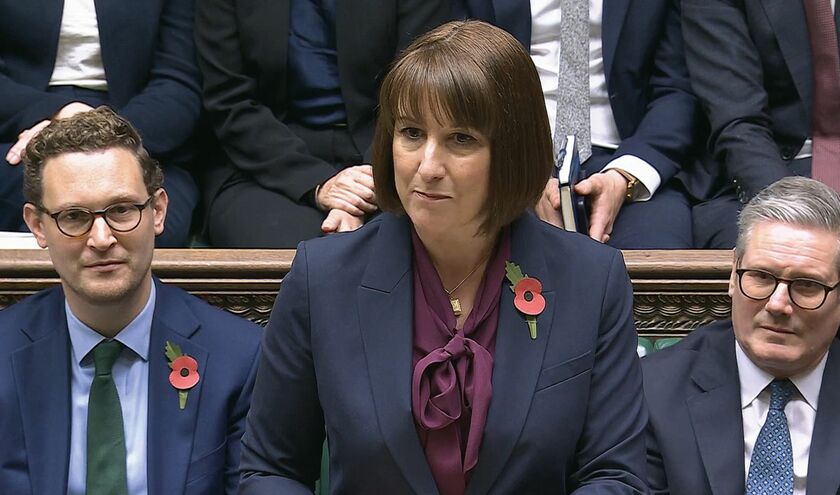Reeves said: ‘This is the largest real terms growth in day-to-day NHS spending outside of Covid since 2010.'
The funding includes £1bn to address the backlog of repairs and upgrades across the NHS and £1.5bn to increase capacity for new surgical hubs and diagnostic scanners to build capacity for over 30,000 additional procedures, and over 1.25m diagnostic tests.
Reeves said health and social care secretary Wes Streeting would be setting out details of his review of the New Hospitals Programme in the coming weeks which will be published in the new year but confirmed work would continue on seven hospitals affected by the Raac crisis.
The chancellor said the investment would be used to bring down waiting lists to the Government's target of 18 weeks by delivering on 40,000 extra appointments each week.
Reeves also announced £11.8bn for the victims of the Infected Blood Scandal, a 6.7% rise in the National Living Wage (NLW) to £12.21, raising the Carer's Allowance Weekly Earnings Limit to the equivalent of 16 hours at the NLW and an extra £600m to support local authorities providing care.
NHS reaction
Amanda Pritchard, chief executive of the NHS, welcomed the chancellor's commitment to ‘record levels of capital investment, which will help us repair and modernise hospitals, GP practices and other facilities, as well as continuing to roll out technology and other reforms which will boost productivity for the benefit of patients and the taxpayer in the long term'.
NHS Confederation chief executive Matthew Taylor welcomed the additional revenue to tackle waiting times and investment in capital as a ‘step in the right direction'.
Saffron Cordery, deputy chief executive, NHS Providers, said: ‘Trust leaders hope that the Government's Budget will equip them to meet the many big challenges facing the NHS. It's positive that work has started on the Government's 10-year plan for the NHS which will need to address longer-term sustainability for "next generation" health services.'
Dr Jennifer Dixon, chief executive of The Health Foundation, said the boost to capital investment should be seen within the context of the £13.8bn maintenance backlog and many years of under-investment.
‘We estimate that between 2010 and 2019, the UK would have invested £33bn more in health care capital had we matched the average across the EU,' she added.
Siva Anandaciva, chief analyst at The King's Fund, said: ‘On the whole, this Budget has been a starting point for the investment and reform that is needed to begin to stabilise the trajectory of NHS performance, but it is not enough for the system to deliver the wholesale shift needed for a health and care system fit for the future. To achieve that, more funding will be needed in next year's comprehensive spending review.'
Social care reaction
Liberal Democrat leader Ed Davey welcomed increased NHS investment but said social care was the ‘elephant in the NHS waiting room' and urged the Government to begin cross-talks on addressing the crisis in the sector.
Jody O'Neill, chief executive and co-founder of online care platform Curam, said the extra money for social care felt ‘like a duct-tape solution to a much bigger, systemic problem'.
‘The cracks in the social care system run deep, yet the government continues to shy away from a desperately needed reform,' O'Neill said.
Professor Martin Green, chief executive of Care England, described the Budget as a 'glaring missed opportunity', adding £600m was 'a drop in the ocean compared to the staggering £2.4bn in rising costs associated with wage increases and employer national insurance contributions'.



